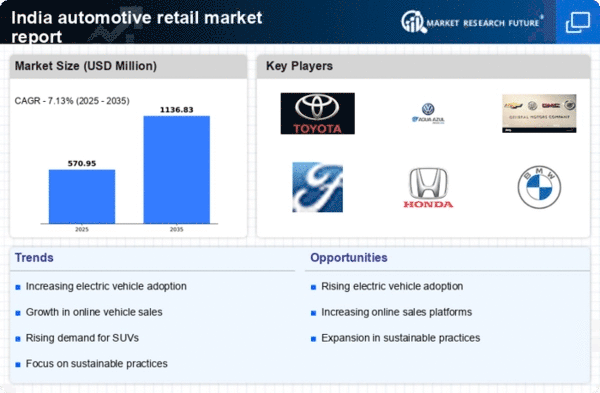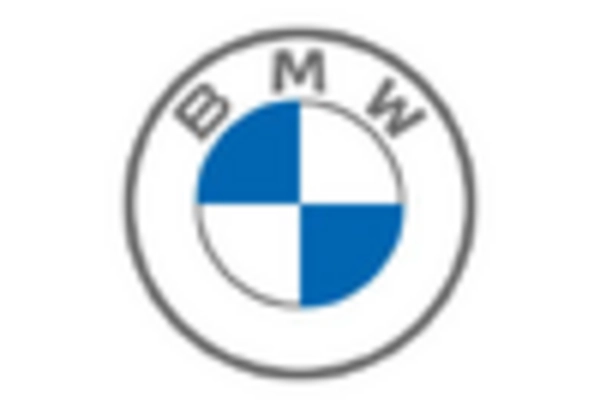Changing Consumer Preferences
The automotive retail market is witnessing a shift in consumer preferences, particularly among younger demographics. There is a growing inclination towards compact and fuel-efficient vehicles, as consumers become more environmentally conscious. This trend is reflected in the increased sales of hybrid and electric vehicles, which have seen a rise of 40% in the last year. Additionally, consumers are increasingly valuing features such as connectivity and advanced safety systems, which are becoming essential criteria in their purchasing decisions. As a result, automotive retailers must adapt their inventory and marketing strategies to align with these evolving preferences, ensuring they meet the demands of a more discerning customer base.
Emergence of New Market Players
The automotive retail market is experiencing disruption due to the emergence of new market players, particularly in the online space. Startups and tech-driven companies are entering the market with innovative business models that challenge traditional dealerships. These new entrants often offer competitive pricing and streamlined purchasing processes, appealing to tech-savvy consumers. As a result, established automotive retailers are compelled to rethink their strategies to maintain market share. The rise of these new players is indicative of a broader trend towards digitalization in the automotive retail market, which may reshape the competitive landscape in the coming years. Adapting to this shift will be essential for traditional retailers to thrive.
Government Initiatives and Policies
The automotive retail market is significantly influenced by government initiatives aimed at promoting vehicle sales and enhancing infrastructure. Policies such as the Faster Adoption and Manufacturing of Electric Vehicles (FAME) scheme have incentivized the purchase of electric vehicles, leading to a 25% increase in electric vehicle sales in the past year. Additionally, the government's push for improved road infrastructure is likely to facilitate easier access to dealerships, thereby boosting foot traffic and sales. These initiatives not only stimulate demand but also encourage manufacturers to innovate, ultimately benefiting the automotive retail market. As such, the alignment of government policies with market needs is crucial for sustained growth.
Economic Factors and Consumer Spending
The automotive retail market is closely tied to economic conditions and consumer spending patterns. Recent data indicates that consumer confidence has improved, leading to a 15% increase in discretionary spending on automobiles. Factors such as rising disposable incomes and favorable financing options are contributing to this trend. Moreover, the competitive landscape among automotive retailers is intensifying, prompting them to offer attractive financing packages and promotional discounts. This environment creates opportunities for consumers to invest in new vehicles, thereby driving sales in the automotive retail market. However, fluctuations in fuel prices and inflation could pose challenges, necessitating careful monitoring of economic indicators.
Technological Advancements in Automotive Retail
The automotive retail market is experiencing a notable shift due to rapid technological advancements. Innovations such as artificial intelligence and machine learning are enhancing customer experiences through personalized services and targeted marketing. For instance, the integration of virtual reality in showrooms allows customers to explore vehicles in a more immersive manner. Furthermore, the adoption of online sales platforms has surged, with a reported increase of 30% in online vehicle purchases in the last year. This trend indicates a significant transformation in consumer behavior, as buyers increasingly prefer the convenience of digital transactions. Consequently, automotive retailers are compelled to adapt their strategies to remain competitive in this evolving landscape.
















